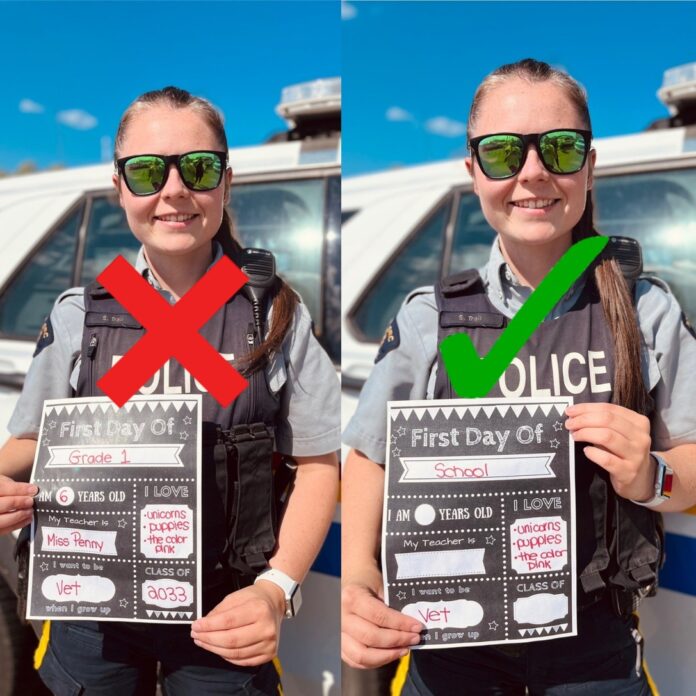RCMP across Canada are reminding parents of the importance of online safety as kids get ready to head back to school.
Officers are warning that back-to-school photos with placards or boards showing fun facts about your kid can have personal information posted along with them, and those details could risk the safety of your kids.
“The personal information often included in these photos can be used by individuals to identify, find, and build a false sense of trust or security with a child,” read a release from the RCMP.
“A stranger could approach a youth, list their personal details, and claim they know their parents or are a trustworthy adult, when it is in fact untrue.”
Tweet This
Click to share quote on Twitter: “A stranger could approach a youth, list their personal details, and claim they know their parents or are a trustworthy adult, when it is in fact untrue.”
Some of the safety tips from the RCMP include not posting personal information like the name of your kid’s school, not having visible addresses in your photo, trying not to post details about your child, and ensuring your online privacy settings are set to maximum security.
Dr. Alec Couros, director of the Centre for Teaching and Learning at the University of Regina, said there are things parents need to be wary of.
“There are quite a few things to look for when you’re thinking about internet dangers online. Certainly, online predators, unsolicited messages in direct messages is quite popular,” said Couros.
“It happens to almost every user online, whether it’s a child or whether it’s an adult, and some of those messages can be quite disturbing, it can contain profanity, or there can be elements of online grooming that you have to be very cautious of.”
He suggests making an internet contract with your kids, setting parameters of what is allowed to be accessed.
Trending Stories
Mikhail Gorbachev, final Soviet leader who ended Cold War, dies at 91
Russia facing ‘numerous failures’ with Iran-supplied drones for Ukraine war: U.S.
“Thinking about the age appropriateness of social media sites, whether it’s Facebook, Instagram or TikTok, they all have mechanisms that will provide a way for people to send direct messages, and these private messages can be from anyone,” added Couros.
He said it’s good to recognize that not everyone on the internet has the best intentions for you.
Brennen Schmidt, an expert on cybersecurity, said we should avoid going straight to blocking websites, and instead have a conversation with our kids.
“Let’s be real, kids are going to find workarounds,” said Schmidt.
He noted that the things we post on social media can inadvertently give people information that we wouldn’t want shared.
“When you think about pictures there’s actually some data that’s in there that’s baked into the image in a lot of cases, called metadata, and that can contain quite a lot of information, including like where the actual location was of the photo.”
Jennifer Flanagan, president and CEO of Actua, a national STEM (science, technology, engineering and math) outreach organization aiming to build students’ skills in those topics, agreed it’s a good time to speak to your kids about online safety.
“There’s a lot we can do about it, and going back to school is the perfect time for us to have a bit of a renewal on online safety.”
Flanagan added that it should also be an empowering conversation, and that kids should be encouraged to have good computer and technical skills.
“At the end of the day, it’s to say, ‘There’s so much good that can come from you having good technical skills, and we want that for you. If something goes wrong, please come and talk to us, because these things snowball so quickly.’”
© 2022 Global News, a division of Corus Entertainment Inc.



